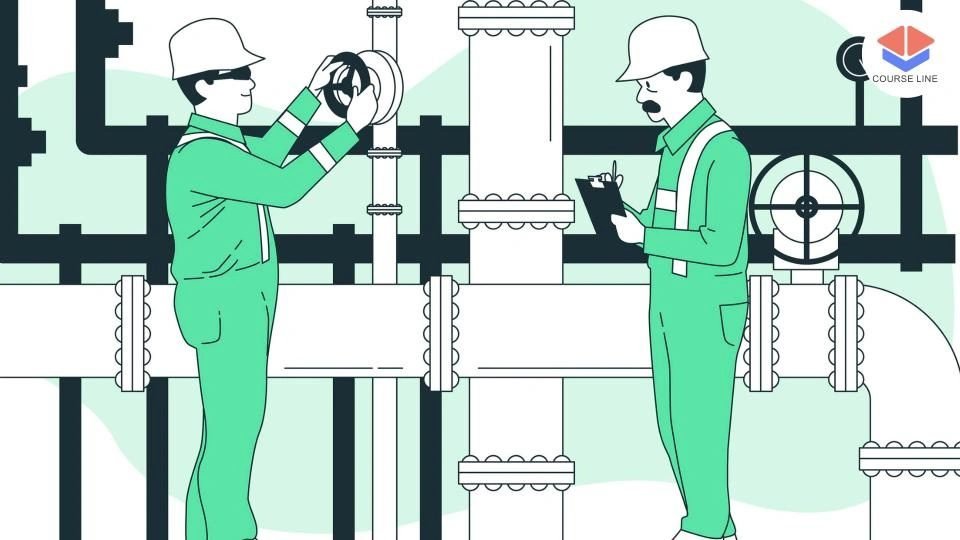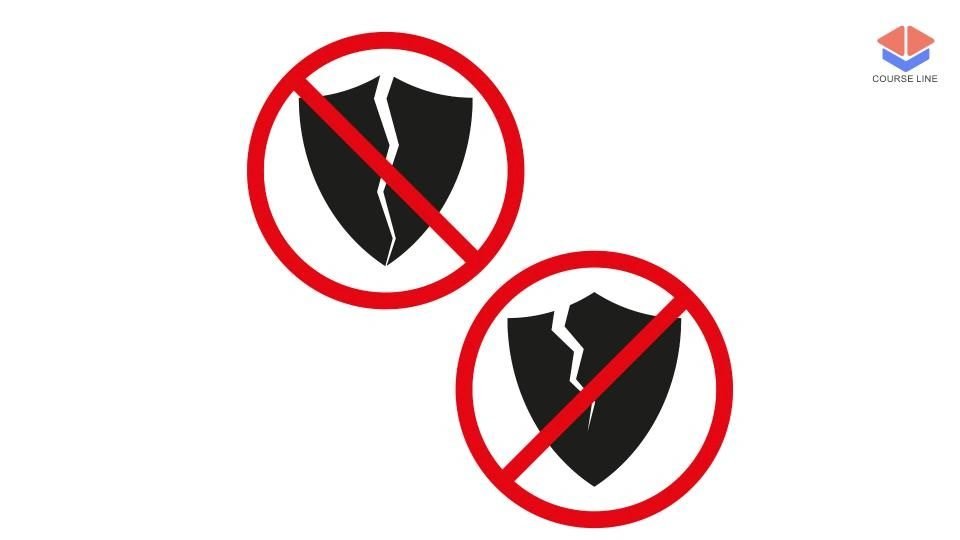Course Features
Price
Study Method
Online | Self-paced
Course Format
Reading Material - PDF, article
Duration
3 hours, 35 minutes
Qualification
No formal qualification
Certificate
At completion
Additional info
Coming soon
- Share
Overview
The Instrumentation Engineering Level 3 Advanced Diploma offers an in-depth exploration of the tools, techniques, and technologies used to measure, control, and automate processes in industrial settings. The course begins by introducing students to the field of instrumentation engineering, including measurement principles, instrumentation symbols, and standard engineering diagrams. Learners will gain a solid grounding in how measurement and control systems function in real-world scenarios.
As the course progresses, it delves into sensors and transducers, teaching students how to select, implement, and manage signal conditioning processes for various sensor types. Lessons on control systems explore PID controllers and distributed control systems (DCS), enabling learners to understand dynamic responses and automated regulation in complex industrial environments.
A key component of the programme is industrial automation, where students are introduced to PLCs (Programmable Logic Controllers) and SCADA systems (Supervisory Control and Data Acquisition), both of which are essential for modern automated infrastructure. The course concludes with a focus on safety standards, preventative maintenance, and real-world case studies to prepare students for immediate application of their knowledge in industrial sectors.
Who is this course for?
The Instrumentation Engineering Level 3 Advanced Diploma offers an in-depth exploration of the tools, techniques, and technologies used to measure, control, and automate processes in industrial settings. The course begins by introducing students to the field of instrumentation engineering, including measurement principles, instrumentation symbols, and standard engineering diagrams. Learners will gain a solid grounding in how measurement and control systems function in real-world scenarios.
As the course progresses, it delves into sensors and transducers, teaching students how to select, implement, and manage signal conditioning processes for various sensor types. Lessons on control systems explore PID controllers and distributed control systems (DCS), enabling learners to understand dynamic responses and automated regulation in complex industrial environments.
A key component of the programme is industrial automation, where students are introduced to PLCs (Programmable Logic Controllers) and SCADA systems (Supervisory Control and Data Acquisition), both of which are essential for modern automated infrastructure. The course concludes with a focus on safety standards, preventative maintenance, and real-world case studies to prepare students for immediate application of their knowledge in industrial sectors.
Requirements
The Instrumentation Engineering Level 3 Advanced Diploma offers an in-depth exploration of the tools, techniques, and technologies used to measure, control, and automate processes in industrial settings. The course begins by introducing students to the field of instrumentation engineering, including measurement principles, instrumentation symbols, and standard engineering diagrams. Learners will gain a solid grounding in how measurement and control systems function in real-world scenarios.
As the course progresses, it delves into sensors and transducers, teaching students how to select, implement, and manage signal conditioning processes for various sensor types. Lessons on control systems explore PID controllers and distributed control systems (DCS), enabling learners to understand dynamic responses and automated regulation in complex industrial environments.
A key component of the programme is industrial automation, where students are introduced to PLCs (Programmable Logic Controllers) and SCADA systems (Supervisory Control and Data Acquisition), both of which are essential for modern automated infrastructure. The course concludes with a focus on safety standards, preventative maintenance, and real-world case studies to prepare students for immediate application of their knowledge in industrial sectors.
Career path
The Instrumentation Engineering Level 3 Advanced Diploma offers an in-depth exploration of the tools, techniques, and technologies used to measure, control, and automate processes in industrial settings. The course begins by introducing students to the field of instrumentation engineering, including measurement principles, instrumentation symbols, and standard engineering diagrams. Learners will gain a solid grounding in how measurement and control systems function in real-world scenarios.
As the course progresses, it delves into sensors and transducers, teaching students how to select, implement, and manage signal conditioning processes for various sensor types. Lessons on control systems explore PID controllers and distributed control systems (DCS), enabling learners to understand dynamic responses and automated regulation in complex industrial environments.
A key component of the programme is industrial automation, where students are introduced to PLCs (Programmable Logic Controllers) and SCADA systems (Supervisory Control and Data Acquisition), both of which are essential for modern automated infrastructure. The course concludes with a focus on safety standards, preventative maintenance, and real-world case studies to prepare students for immediate application of their knowledge in industrial sectors.
-
- Overview of Instrumentation Engineering 00:10:00
- Basic Principles of Measurement 00:10:00
- Instrumentation Symbols and Diagrams 00:10:00
-
- Types of Sensors 00:10:00
- Transducers and Signal Conditioning 00:10:00
- Sensor Selection and Applications 00:10:00
- Introduction to Control Systems 00:10:00
- PID Controllers 00:10:00
- Distributed Control Systems (DCS) 00:10:00
- Safety Standards in Instrumentation 00:10:00
- Instrumentation Maintenance Practices 00:10:00
- Case Studies and Real-world Applications 00:10:00
- Premium Certificate 00:15:00

No Reviews found for this course.
Is this certificate recognized?
Yes, our premium certificate and transcript are widely recognized and accepted by embassies worldwide, particularly by the UK embassy. This adds credibility to your qualification and enhances its value for professional and academic purposes.
I am a beginner. Is this course suitable for me?
Yes, this course is designed for learners of all levels, including beginners. The content is structured to provide step-by-step guidance, ensuring that even those with no prior experience can follow along and gain valuable knowledge.
I am a professional. Is this course suitable for me?
Yes, professionals will also benefit from this course. It covers advanced concepts, practical applications, and industry insights that can help enhance existing skills and knowledge. Whether you are looking to refine your expertise or expand your qualifications, this course provides valuable learning.
Does this course have an expiry date?
No, you have lifetime access to the course. Once enrolled, you can revisit the materials at any time as long as the course remains available. Additionally, we regularly update our content to ensure it stays relevant and up to date.
How do I claim my free certificate?
I trust you’re in good health. Your free certificate can be located in the Achievement section. The option to purchase a CPD certificate is available but entirely optional, and you may choose to skip it. Please be aware that it’s crucial to click the “Complete” button to ensure the certificate is generated, as this process is entirely automated.
Does this course have assessments and assignments?
Yes, the course includes both assessments and assignments. Your final marks will be determined by a combination of 20% from assignments and 80% from assessments. These evaluations are designed to test your understanding and ensure you have grasped the key concepts effectively.
Is this course accredited?
We are a recognized course provider with CPD, UKRLP, and AOHT membership. The logos of these accreditation bodies will be featured on your premium certificate and transcript, ensuring credibility and professional recognition.
Will I receive a certificate upon completion?
Yes, you will receive a free digital certificate automatically once you complete the course. If you would like a premium CPD-accredited certificate, either in digital or physical format, you can upgrade for a small fee.
Course Features
Price
Study Method
Online | Self-paced
Course Format
Reading Material - PDF, article
Duration
3 hours, 35 minutes
Qualification
No formal qualification
Certificate
At completion
Additional info
Coming soon
- Share
Close Protection Level 8 Advanced Diploma
Course Line265₩935,667.25Original price was: ₩935,667.25.₩28,623.78Current price is: ₩28,623.78.Advanced Woodworking Techniques
Course Line237₩935,667.25Original price was: ₩935,667.25.₩28,623.78Current price is: ₩28,623.78.Motorbike Maintenance Level 3 Advanced Diploma
Course Line237₩935,667.25Original price was: ₩935,667.25.₩28,623.78Current price is: ₩28,623.78.





